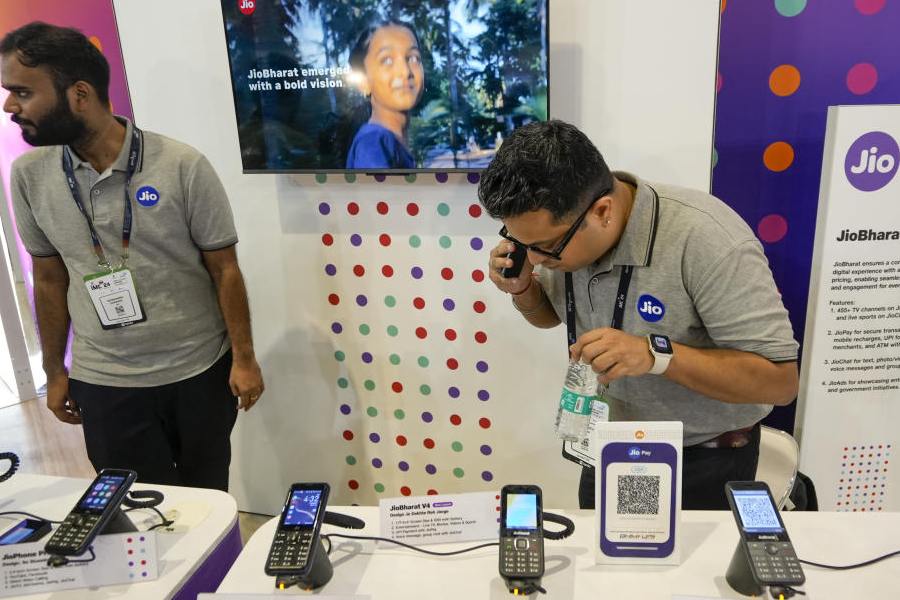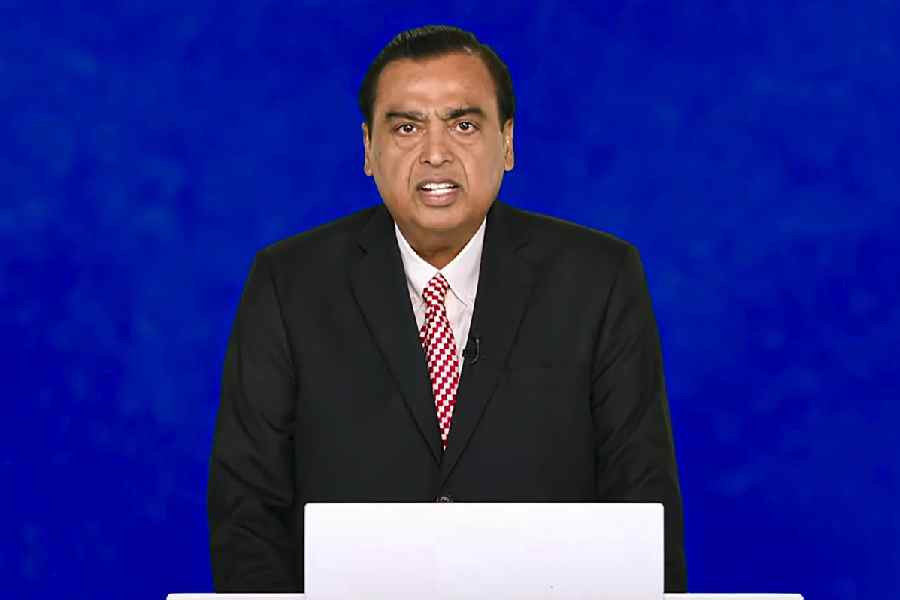Reliance Jio and Bharti Airtel clashed with satellite players that are eyeing India's lucrative satcom market at TRAI's open house discussion on Friday, as telecom operators made a spirited pitch for level-playing-field among the "competing" "substitutable services" and satcom companies argued that justification for administrative assignment of radiowaves is "techno-economic".
The high-voltage discussions went on for over six hours under the watchful eye of the regulator and saw active participation of all key stakeholders - from Jio, Airtel and Vodafone Idea to satellite biggies like Starlink and Amazon (Project Kuiper is Amazon's low Earth orbit satellite broadband network).
The open house discussion was punctuated with frequent interjections and counter-arguments, and, at times, emotional outbursts, as opposing fractions made their submissions on issues such as pricing, period of assignment of satcom spectrum, frequency bands, roll out obligations, and other nuances.
"We (TSPs) are working in a hyper-competitive market. We are not afraid of competition. It is the other way around actually. The entities which want to be in this space via satellite, in the telecommunication space via satellite, are afraid of competition, and that's why they want all this kind of protection and get spectrum for free," Ravi Gandhi of Reliance Jio said.
Gandhi batted for a level-playing field saying same terms and conditions, and same spectrum pricing is "extremely important".
Gandhi also suggested that if government decides not to auction spectrum for satcom, they can auction the licence - as was done in 2001 when licence was auctioned and spectrum was given on administrative basis for mobile services.
Slamming arguments made by certain players around "predatory pricing of next-generation systems", Parnil Urdhwareshe, Director, Starlink Satellite Communications said Starlink prices for any country are readily available on its website, and that it is proud of making satellite broadband affordable for users who have so far been unserved.
He asserted that Indian users want satellite broadband services and that these "intelligent consumers" have the right to choose an operator who will provide them with an affordable, high-quality service.
"In our experience, over 113 markets as of today, users always choose satellite broadband when they lack other options for reasons of coverage or reliability or affordability. And we think all of these users have an equal right to crossing the digital divide. So a false distinction between their lack of connectivity versus traditional use cases is fundamentally against any goals of universal access, which is really the point of services such as Starlink," Urdhwareshe said.
All satellite operators should be able to serve any user who requires their services across India rather than distinctions being created based on their preferred markets, he argued.
"Users choose Starlink because their current options are unavailable, unreliable or too expensive. Now some commentators are explicitly arguing that those users should continue to be stuck with services that either don't exist or are too unreliable or are too expensive...," he said.
The justification of administrative assignment is techno-economic that satellite spectrum is shared and enforcing an exclusionary auction mechanism makes entire satellite ecosystem "worse off," Urdhwareshe said.
"...I wanted to very quickly touch on unfortunate and entirely false allegation of possible predatory pricing by next-generation systems. Debunking this is thankfully very easy. We encourage TRAI and all interested participants to simply look at Starlink's operations in any of the 113 markets we are live in today...we maintain absolute transparency on Starlink pricing and performance around the world," he said.
Musk's Starlink and global peers like Amazon's Project Kuiper back an administrative allocation of satcom spectrum.
While Ambani's Reliance Jio has been vocal about the need to allocate such spectrum through an auction to give a level playing field to legacy operators who buy airwaves and set up infrastructure like telecom towers, Sunil Mittal last month at an industry event where Prime Minister Narendra Modi was also present articulated the need to use bidding for such allocation.
Rahul Vatts, Chief regulator officer for Bharti Airtel said creating a level-playing-field is crucial for the balanced growth of the entire ecosystem.
"So while it is important to encourage satcom services in traditional markets and traditional use cases, it is equally important to safeguard significant investments made to the tunes of lakhs of crores of rupees by terrestrial operators over past three decades.
"So we submit, satcom should be encouraged to serve traditional markets, traditional use cases, including backhaul, the defense use, including the government use, and to areas which are completely unconnected and therefore driving the adoption of satcom must also go hand-in-hand with ensuring that we ensure a healthy competition and a level playing field with other ecosystem players," he said.
Airtel said the price of satellite spectrum has to be in a manner that it ensures a level-playing-field and competitive issues are addressed.
"Also as terrestrial operators, we are subject to a lot of privacy and security conditions and guidelines, and there have been cases in the past where some countries have experienced Satcom services being used to deliver messages, propaganda, etc," Vatts said contending that security and level playing conditions should also be ensured while framing norms for satcom services.
Amazon submitted that spectrum management fee should be based on the percentage of AGR, and by "adopting a spectrum charge of less than 1 per cent of AGR".
"Amazon submits that spectrum assignment should be co-terminus with the license, and under the mechanism, TRAI should establish a spectrum assignment period of 20 years or till expiry of license, whichever is earlier," Kopal Shrivastava, who leads Public Policy for digital devices and connectivity at Amazon India, said.
Except for the headline, this story has not been edited by The Telegraph Online staff and has been published from a syndicated feed.












